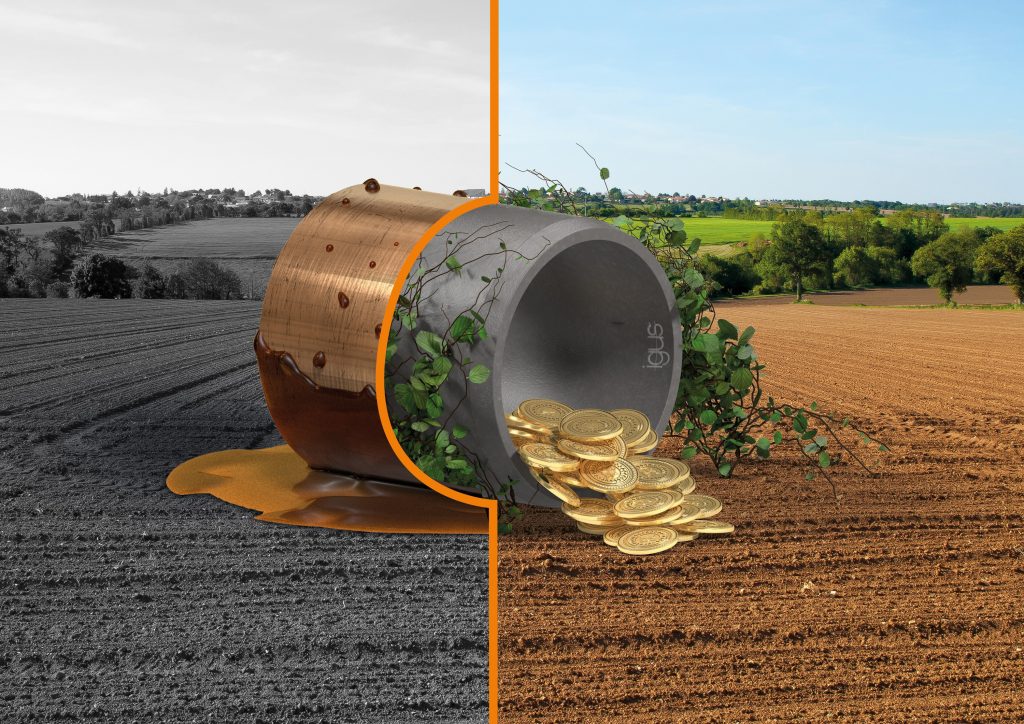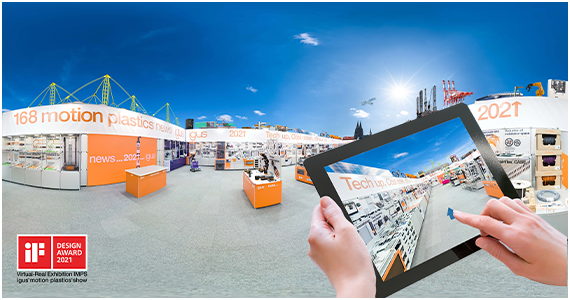RWTH study quantifies the advantages of polymer bearings from igus for the first time
Users save up to $1,502,830 in lubricant costs per year while improving their environmental balance

17 April 2024 – For the first time, a joint study by scientists from RWTH Aachen University and igus® shows the costs that can be saved in applications if self-lubricating polymer bearings from igus are used instead of conventional metal bearings: up to $1,502,830 per year. Also a first – the study calculates the environmental impact – at the Heineken brewery, among others.
Classic metal bearings require constant relubrication. Plain bearings made of high-performance plastics from igus do not, thanks to integrated solid lubricants. This saves purchasing costs for lubricants. Depending on the application, the savings can be between $1,502,830 and $14 million per year, according to the study by the RWTH scientists. In addition, between 8,000 and two million working hours are saved annually on the manual relubrication of bearing points.
“The figures impressively demonstrate how a supposedly small changeover can save enormous amounts of money and resources at the end of the day,” emphasizes Stefan Loockman-Rittich, Head of the iglide Plain Bearing Business Unit at igus.
One study participant, the Heineken Brasil brewery, for example, would save 20 tons of lubricant per year, equaling $1,613,212, and $5,796,630 in personnel costs by switching to polymer bearings in all conveyor belts at its 160 sites worldwide.
Heineken Brewery: polymer bearings reduce CO2 emissions amounting to 63,524 lbs
The RWTH study also calculates the positive environmental impact of bearings made of high-performance plastics from igus for the first time. Heineken Brasil, for example, saves CO2 equivalents totaling 396 lbs per year by replacing metal bearings with polymer bearings at 600 bearing points.
“If all of Heineken’s branches were to switch to polymer bearings, the company could save 63,523 lbs of CO2 equivalents. And that is a considerable figure for such a small change,” says Loockman-Rittich.
For comparison, When a vehicle consumes one liter of petrol, it emits around 5.22 lbs of CO2. The savings would therefore correspond to over 3,170 lbs of petrol.
Loockman-Rittich continued, “More and more manufacturers of machines, systems, and vehicles are feeling the pressure to disclose the carbon footprint of their products. Our customers are therefore delighted to be able to refer to a scientifically proven assessment of the environmental benefits of the self-lubricating effect of our plain bearings.”
About the RWTH study
The WBA Werkzeugbau was commissioned to carry out the independent study. This research company works with the Laboratory for Machine Tools (WZL) and the Fraunhofer Institute for Production Technology (IPT) on the RWTH Aachen Campus as part of one of Europe’s largest research laboratories in the field of production technology. The results are based on expert interviews with nine companies from the automation technology, construction machinery, agricultural, food, packaging, and bottling industries.



